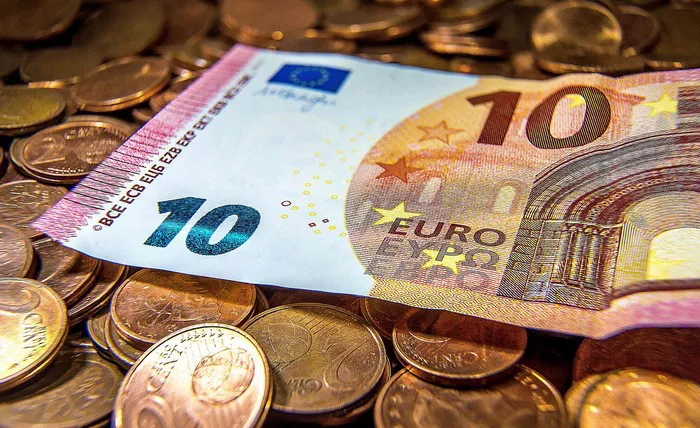In the intricate web of international finance, currency strength plays a pivotal role in determining economic stability, investment opportunities, and trade competitiveness. Traders, investors, and policymakers alike closely monitor the strength of various currencies to make informed decisions. At any given moment, the status of the strongest currency can fluctuate due to a myriad of factors such as economic indicators, geopolitical events, and market sentiment. In this comprehensive guide, we delve into the dynamics of currency strength in the current global landscape, shedding light on the factors influencing the strongest currency at the moment.
Understanding Currency Strength
Currency strength refers to the value of a particular currency relative to other currencies in the foreign exchange market. It is often measured using various indicators such as exchange rates, trade balances, interest rates, inflation rates, and economic growth rates. A strong currency typically reflects a robust economy with low inflation, high-interest rates, favorable trade balances, and stable political conditions. Conversely, a weak currency may indicate economic vulnerabilities, high inflation, low-interest rates, trade deficits, or geopolitical instability.
Factors Influencing Currency Strength
1. Economic Indicators: Key economic indicators such as gross domestic product (GDP) growth, unemployment rates, consumer spending, and industrial production can significantly impact currency strength. Countries with strong economic fundamentals tend to have stronger currencies as investors seek higher returns in stable environments.
2. Monetary Policy: Central banks play a crucial role in shaping currency strength through their monetary policy decisions. Interest rate adjustments, quantitative easing programs, and interventions in the foreign exchange market can influence the value of a currency. Higher interest rates typically attract foreign capital, leading to currency appreciation, while lower rates may weaken a currency.
3. Geopolitical Events: Geopolitical tensions, trade disputes, and political instability can cause fluctuations in currency markets. Uncertainty and risk aversion often lead investors to seek refuge in safe-haven currencies such as the US dollar, Japanese yen, or Swiss franc, strengthening these currencies relative to others.
4. Market Sentiment: Investor sentiment and market expectations play a significant role in currency valuation. Positive economic data, political stability, and confidence in government policies can bolster a currency’s strength, while negative developments may lead to depreciation.
Identifying the Strongest Currency
Determining the strongest currency at any given moment requires a comprehensive analysis of multiple factors. While certain currencies may exhibit strength in the short term due to specific events or trends, long-term strength is often rooted in underlying economic fundamentals. Here are some of the strongest currencies in the current global landscape:
1. US Dollar (USD): The US dollar remains the world’s primary reserve currency and is widely regarded as a safe-haven asset. Its strength is supported by the size and diversity of the US economy, as well as the dominance of US financial markets.
2. Swiss Franc (CHF): The Swiss franc is known for its stability and is considered a safe-haven currency during times of uncertainty. Switzerland’s strong economy, low inflation, and prudent fiscal policies contribute to the franc’s strength.
3. Euro (EUR): Despite challenges within the Eurozone, the euro remains a formidable currency backed by a large and diverse economy. The European Central Bank’s monetary policy decisions and economic reforms influence the euro’s strength.
4. Japanese Yen (JPY): The Japanese yen is another safe-haven currency sought by investors during times of instability. Japan’s trade surplus, low inflation, and strong manufacturing sector support the yen’s strength.
5. British Pound (GBP): Despite Brexit-related uncertainties, the British pound retains strength due to the size and resilience of the UK economy. However, its value may fluctuate depending on developments in Brexit negotiations and economic indicators.
Conclusion
In the dynamic world of currency markets, identifying the strongest currency at any given moment requires a nuanced understanding of economic fundamentals, monetary policies, geopolitical dynamics, and market sentiment. While certain currencies may exhibit strength in the short term, long-term stability is contingent upon a country’s economic resilience and policy framework. Investors, traders, and policymakers must carefully analyze these factors to navigate currency markets effectively and mitigate risks. By staying informed and adopting a strategic approach, stakeholders can capitalize on opportunities and safeguard against volatility in the ever-evolving global economy.
FAQs
Q1: What makes a currency strong?
A1: A strong currency is typically backed by a robust economy with low inflation, high-interest rates, favorable trade balances, and stable political conditions. Strong economic fundamentals, prudent monetary policies, and investor confidence contribute to currency strength.
Q2: Why is the US dollar considered the world’s primary reserve currency?
A2: The US dollar’s status as the world’s primary reserve currency is attributed to the size and diversity of the US economy, the stability of US financial markets, and the widespread acceptance of the dollar in international trade and finance. Additionally, the US dollar’s role as the currency for pricing commodities such as oil further solidifies its status as a global reserve currency.
Q3: How do geopolitical events impact currency strength?
A3: Geopolitical events such as conflicts, trade disputes, and political instability can cause fluctuations in currency markets. Uncertainty and risk aversion often lead investors to seek refuge in safe-haven currencies, strengthening them relative to others. Conversely, geopolitical stability and positive developments may bolster investor confidence and support currency strength.


